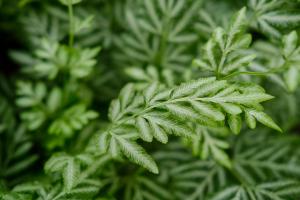How to Care for Water Plants in Winter
Just because the weather is getting colder doesn't mean you have to retire your water plants for the season. With the proper care, most aquatic plants can survive the winter and come back strong in the spring. Here are some tips for caring for your water plants during the colder months:
1. Move Your Plants Indoors
If you have potted water plants or floating plants that cannot survive in colder temperatures, you can bring them indoors for the winter. Place them near a window or other source of natural light, and be sure to fertilize them regularly. Keep in mind that not all aquatic plants thrive in indoor environments, so it's important to research each plant's specific needs to ensure their survival.
2. Keep Your Pond or Water Garden Clean
During the winter, it's important to keep your pond or water garden clean to prevent the accumulation of debris and other organic matter that can become toxic to your water plants. Continue to skim the surface of the water regularly and remove any fallen leaves or other debris from the bottom of the pond or water garden.
3. Trim Your Plants Regularly
Some water plants may continue to grow throughout the winter, so it's important to keep them trimmed to prevent overgrowth and to improve their overall health. Be sure to use sharp scissors or pruning shears to avoid damaging the plants, and remove any dead or damaged leaves or stems.
4. Protect Your Plants from Freezing Temperatures
Perhaps the most important step in caring for your water plants during the winter is to protect them from freezing temperatures. If you live in an area with harsh winters, consider investing in a pond heater or aerator to keep the water from freezing completely. You can also float a plastic ball or other object on the surface of the water to create a small area of unfrozen water where your plants can survive.
5. Research Your Plants' Specific Needs
Finally, it's important to research each of your water plants' specific needs to ensure they receive the care they need to survive the winter. Some plants may require more frequent fertilization or trimming, while others may be more sensitive to changes in temperature or sunlight. By understanding each plant's unique needs, you can create the optimal environment for its survival.
With the proper care and attention, your water plants can survive the winter and come back even stronger in the spring. By following these tips, you can enjoy the beauty of your aquatic plants year-round.

 how many times do yo...
how many times do yo... how many planted tre...
how many planted tre... how many pine trees ...
how many pine trees ... how many pecan trees...
how many pecan trees... how many plants comp...
how many plants comp... how many plants can ...
how many plants can ... how many plants and ...
how many plants and ... how many pepper plan...
how many pepper plan...
































